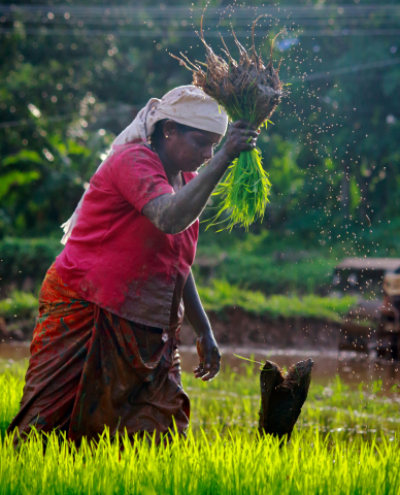Doing Feminist Field Work during COVID-19

Kuntala Lahiri-Dutt, Professor in the Resource, Environment and Development Program at Crawford School of Public Policy (The Australian National University) and member of the Community Economies Research Network (CERN), is using a new method to help track women’s experiences of COVID-19 and its impact on their lives and livelihoods in one of the most remote villages in India.
Professor Lahiri-Dutt and her colleagues Arnab Chakraborty and Sourav Bag from Professional Assistance for Development Action (PRADAN) are using Rapid Phone Appraisal to interview women in Chakadoba, a village 44 kilometres from Bankura town (a district headquarters in West Bengal) that is home to Indigenous farming communities and only accessible by bicycle.
Rapid Phone Appraisal allows researchers to engage with research participants even in the context of lockdown when international travel is restricted and field visits are ruled out.
For PRADAN this is a means to maintain contact with villagers and extend relationships that have been built over several years through involvement with self-help groups and other developmental projects in the village.
The method draws on Rapid Rural Appraisal associated with the work of Robert Chambers but gives it a modern twist by using mobile phones, a technology that has grown exponentially in India even in the most remote places.
The research team has developed a protocol for Rapid Phone Appraisal including making sure that women are in a private and comfortable space for an hour-long conversation.
The results of the research are still coming in, but when complete the aim is to inform policymakers about what can be done to helps address what women identify to be their biggest concerns as they contend with lives lived at the crossroads of caste, class, ethnicity, age and other factors.
For more information see https://www.policyforum.net/conducting-feminist-research-during-lockdown/.
Photo by Nandhu Kumar on Unsplash.
Jenny Cameron
